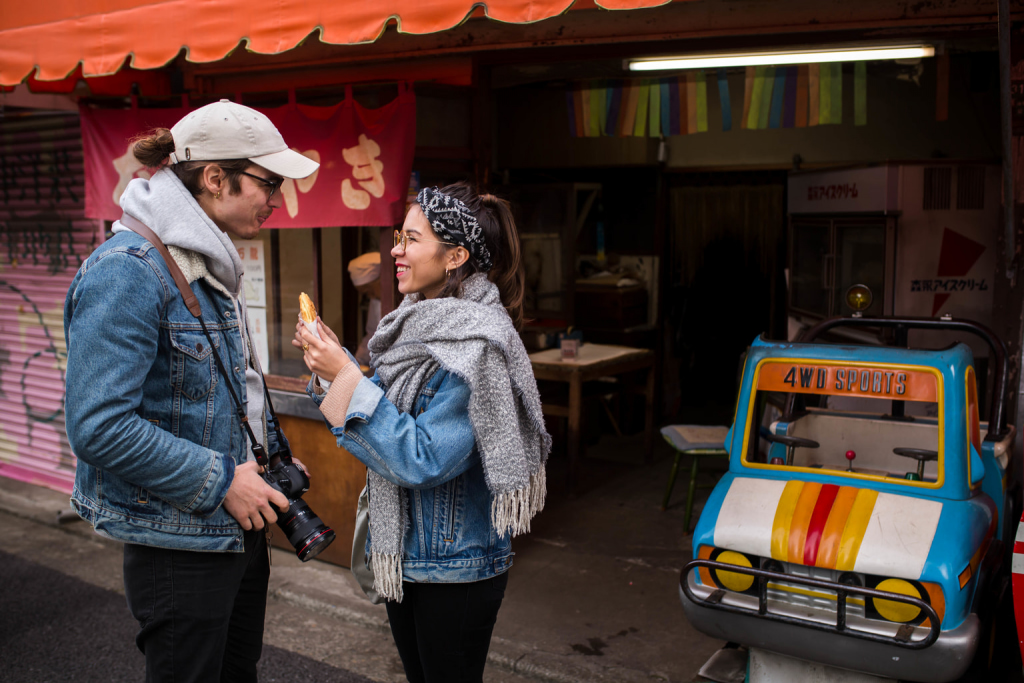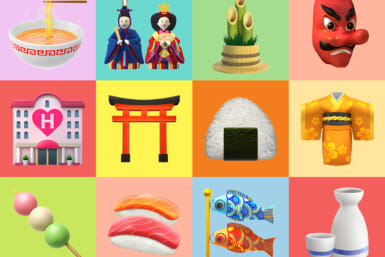Ever since their first contact with Europeans, and later on, North Americans, Japan has held this position of an exotic land, now with robot restaurants, crowded trains, and as an arcade lover’s paradise. That is the life we know as dwellers in Tokyo, Osaka, even Fukuoka and Sapporo. Blinded by the city lights, we forget that Japanese culture is, in fact, rooted and alive in the villages, rural regions and prefectures.
After living and working in Tokyo, last year Amandine Cochard and Rodolphe Miez, both expatriates from France, set off on an 80-day road trip to film 10 documentaries in Japan to showcase the Japanese essence that lies on the outskirts of tourist attractions and hot spots. The films, which will be released twice a month from now until November, highlight everything from woodworking in rural Kyoto to Noh theater in Miyajima to gyoza-making in Takayama.
I discovered them on Instagram under 80joursjapon, which lead me to binge their travel vlogs on Youtube. I reached out to them in hopes to get some answers to a few questions I had about their journey and relationship with Japan.
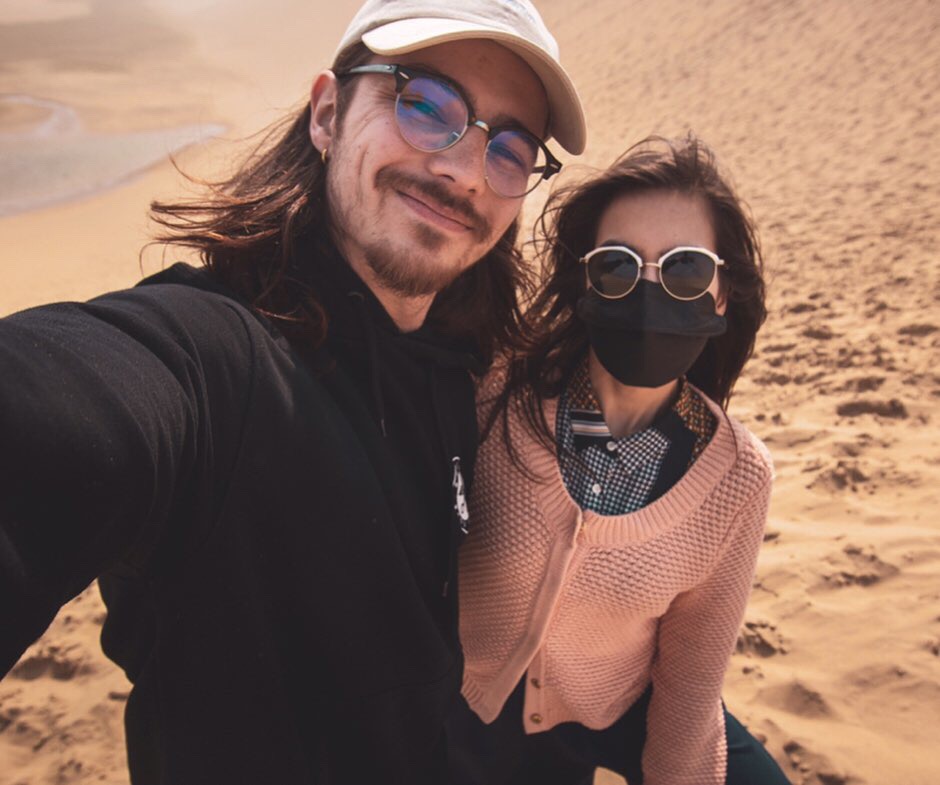
After living in Tokyo for three years, what inspired you to road trip throughout Japan?
Amandine: When you live and work in Tokyo, there are few opportunities to enjoy the real Japan; most of us have 10 days of holidays or so, and the cost of transportation and accommodation is high. When you travel, it takes one or two days to discover an area, to do the top two or three things before it’s time to head back.
On a road trip, on the other hand, you discover places you’ve never heard of, you have the flexibility to make detours and visit places you have heard of but never considered important enough to actually take the time to go to. There’s a desire to see the life of people outside the metropolis, which, thanks to our project, we were able to find out.
Rodolphe: I never really enjoyed a sedentary life. I enjoy traveling a lot and seeing new places. My goal has always been to find a way to pursue my hobby and make money at the same time. Discovering a new side to this country I had been living in sounded like a crazy thing to do, so I set off to do it. My first experience with a working holiday visa was bittersweet, but I wanted to try living in Japan one more time. I knew I would eventually leave, and I had to make sure I had no regrets.
Why did you settle on the idea of documentaries?
Amandine: A few weeks after we started dating, we came up with the vague idea of a road trip. A couple of months later, I suddenly got laid off. I didn’t realize it, but I had been burned out for months prior to it. My body was sick from constant stress and lack of rest, so losing my job came as a release. Quickly, the need to make a decision came: find a job or start my own business and I knew for sure that I never wanted to work for someone else.
Rodolphe and I discovered that filming documentaries has been a dream of ours since we were children. We love Japanese culture and we want people to know that there’s more to it than anime, geisha and Tokyo.
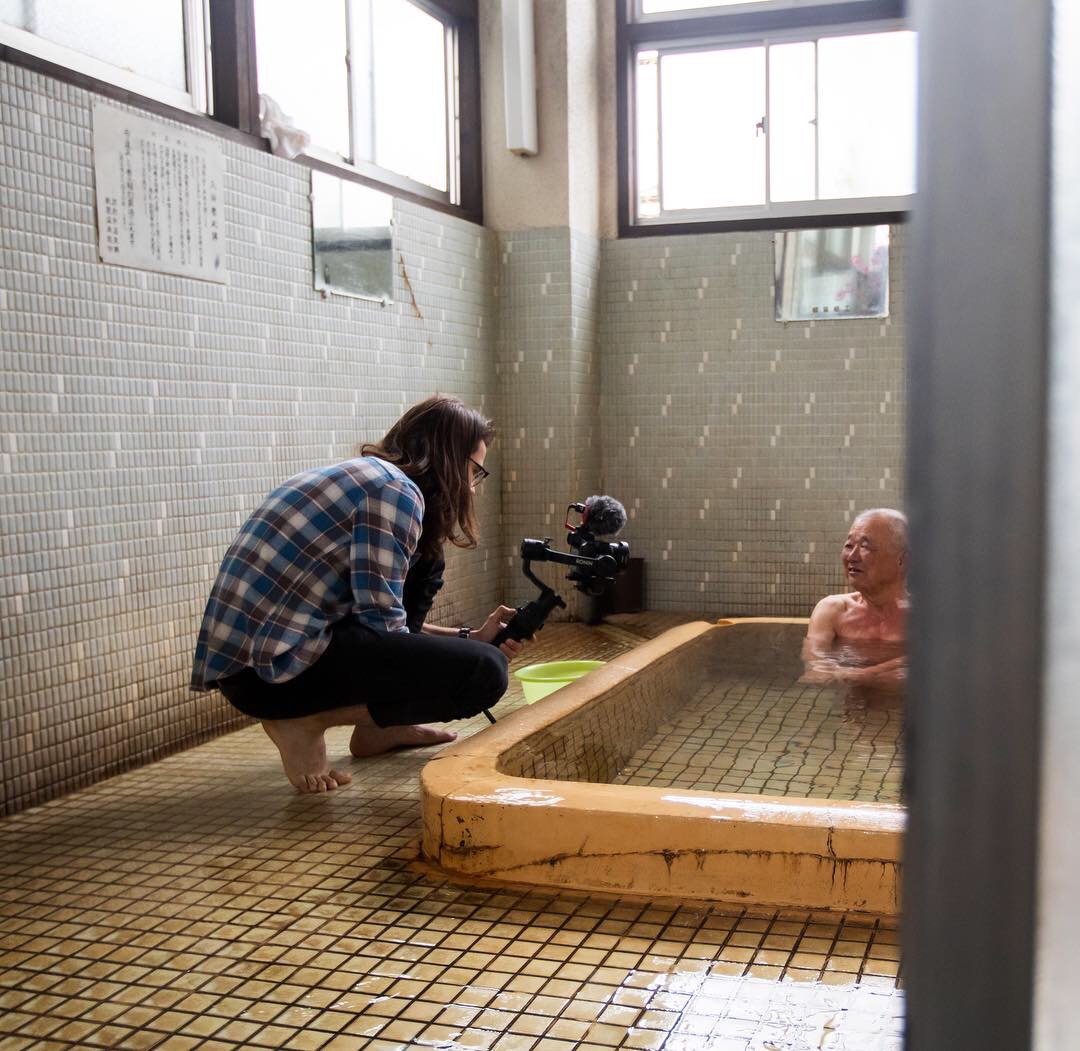
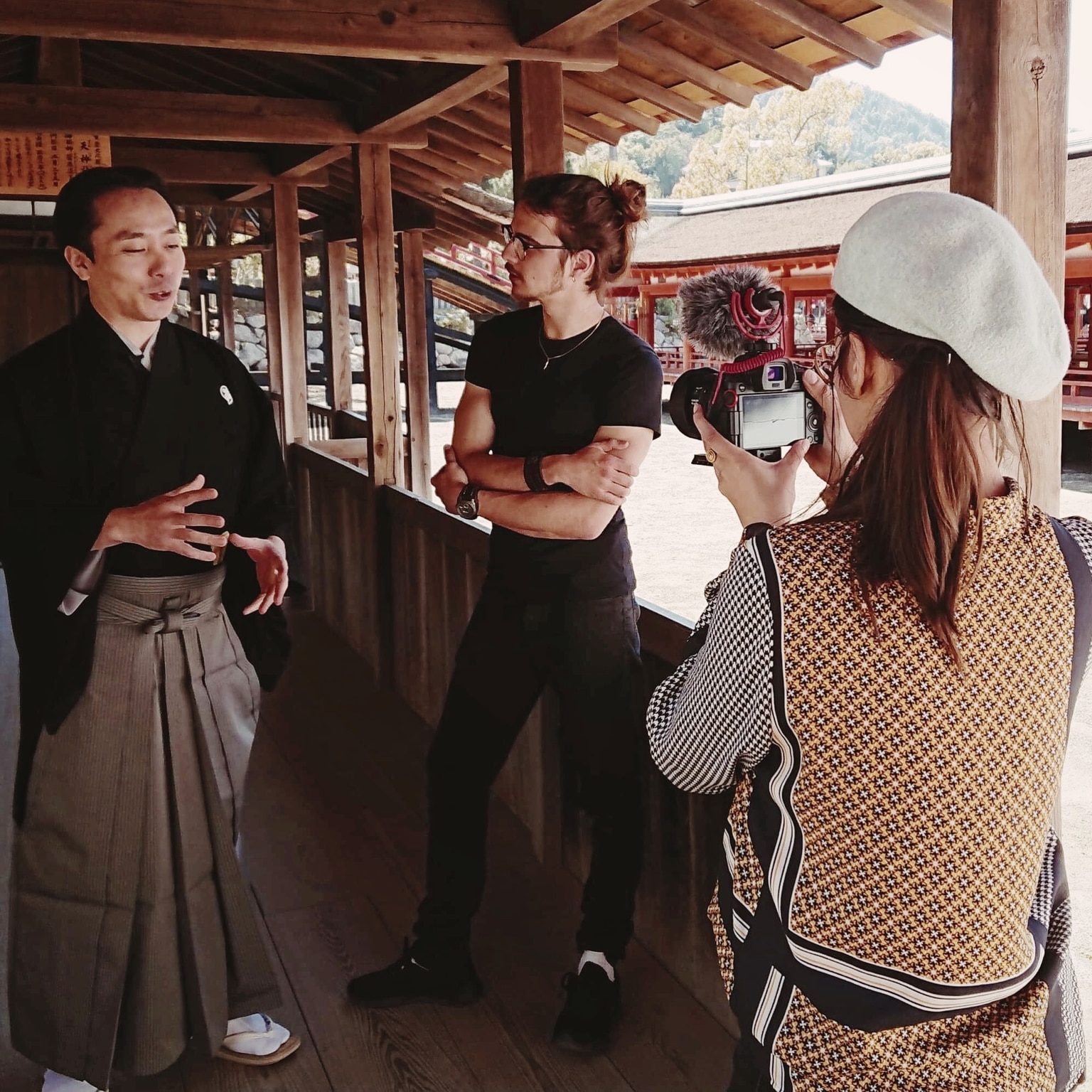
Rodolphe: I’ve always loved making videos. After discussing with Amandine, we knew that making documentaries together was the right thing to do. Our skills are a great match, we get along really well, and we share the passion for traveling and telling stories. She taught me how to be confident, and always supported me. Meeting her was a massive game changer in my life, and finally felt ready to take the leap.
You’ve planned to produce ten documentaries on ten different subjects. How did you pick them and why?
Amandine: We gave ourselves guidelines: the documentaries shouldn’t be set in Tokyo or Osaka, they must introduce traditional Japanese culture and must be about something not well-known in France. I explained our projects to many people, mostly women I met at FEW, GGI events and through the Instamingle Facebook group. I also used social media to ask if anyone knew someone fitting and willing to be filmed. We received the support of many people we didn’t know. They loved our project and wanted to help us.
Rodolphe: Amandine did most of the work when it came to contacting the people to work with. I was still working full-time when we were planning the road trip, so I didn’t have much time to dedicate to it. We discussed what kind of documentaries we wanted to make when I came back home, she asked me if I was interested in making a video about someone or something, and we would decide together if we were going to make it happen or not. Preparing the project was a lot of work.
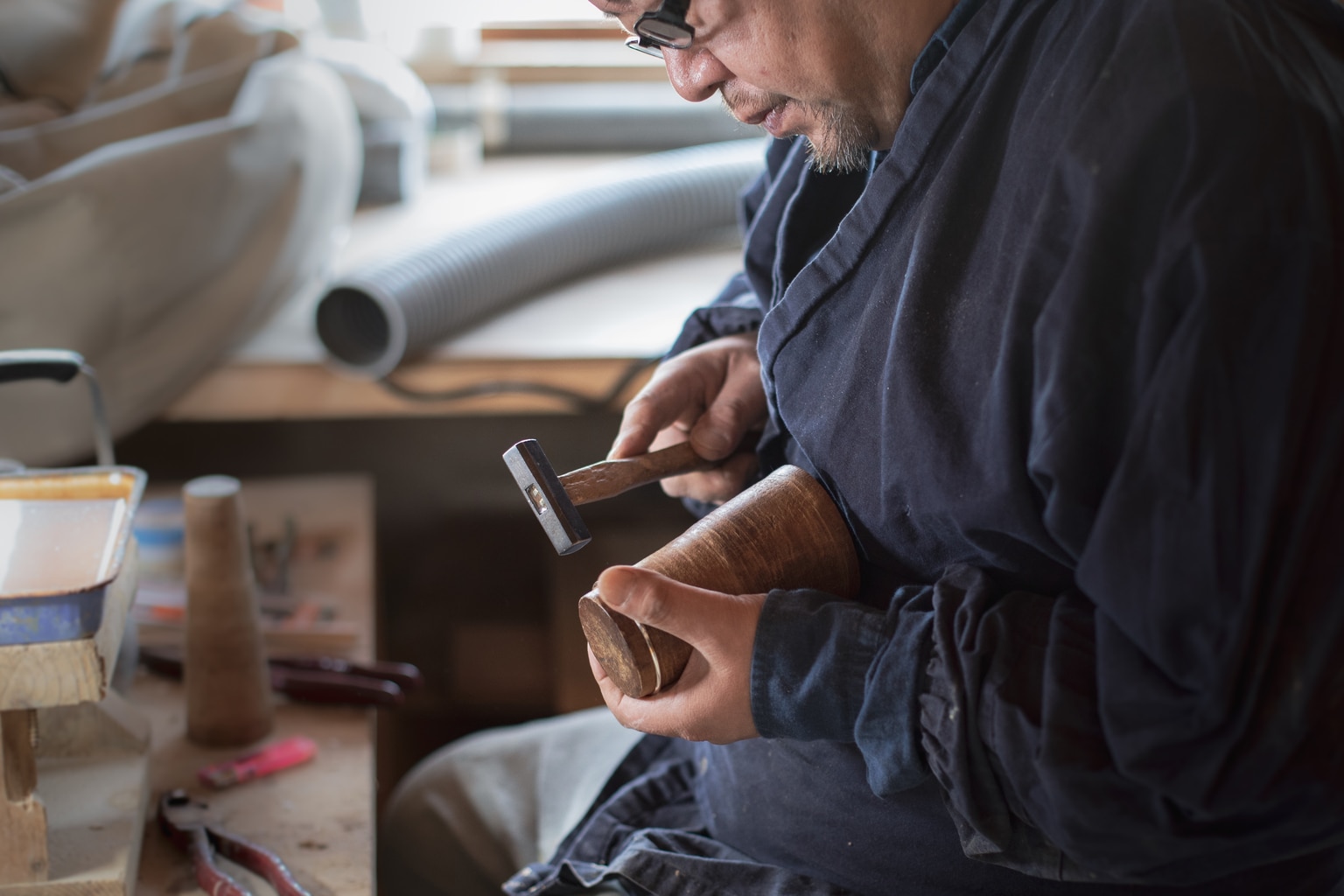
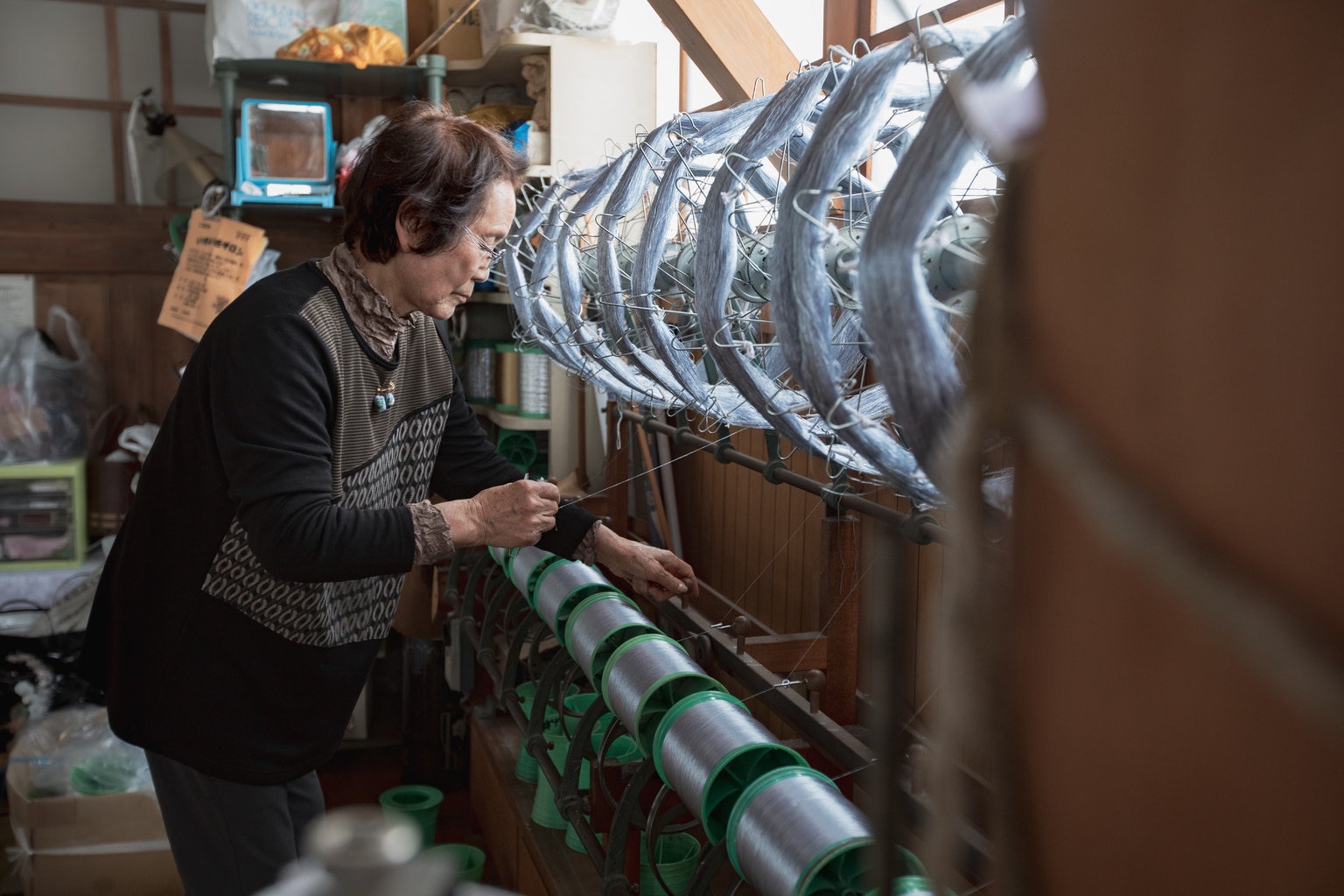
Are there many documentaries on Japanese culture? What are yours bringing to the table?
Amandine: Today, it’s still difficult to legally watch documentaries online, but our documentaries are free to watch on Youtube because we think everybody should be able to learn and discover anything at any time and anywhere. Our goal is to remind our viewers that the food and things we buy come at a price higher than what’s printed on the price tag.
Rodolphe: Our documentaries tell human stories. They don’t only show the craft, but the people behind them. It’s important to show their work, but it’s even more important to show who they are. I like to let those we interview talk about their lives, what makes them happy, what they want people to know about them and what they do. Each documentary is an intimate journey about someone who is actively participating in keeping a traditional legacy alive.
Did your impression of Japanese culture change since you started your project?
Amandine: Absolutely. With our documentary project, we drive across Japan to the most secluded places and are welcomed into people’s everyday lives, if only for a few days. It’s baffling. We’ve learned so much about the real Japan and its people in the few weeks we’ve been on the road, more than we ever did in our years living in Tokyo.
What we noticed is that Japanese people act differently from one city to another. In the first, people will welcome foreigners the same as Japanese. In the second, they are straightforward and curious. This would never happen in Tokyo, where everybody is blind to others.
Rodolphe: This country is far more beautiful than I could’ve ever imagined. The landscapes are breathtaking, and we were astonished quite a few times. I also feel like I have a greater understanding of what Japanese culture actually is. We met people who would invite us home for dinner and even slept over a few times. We met people with whom we had crazy conversations with. It was really refreshing to be far from the big city where no one seems to have time for anything. In the countryside, time goes by slower. This trip taught me a lot, not only about Japanese culture, but about life, too.
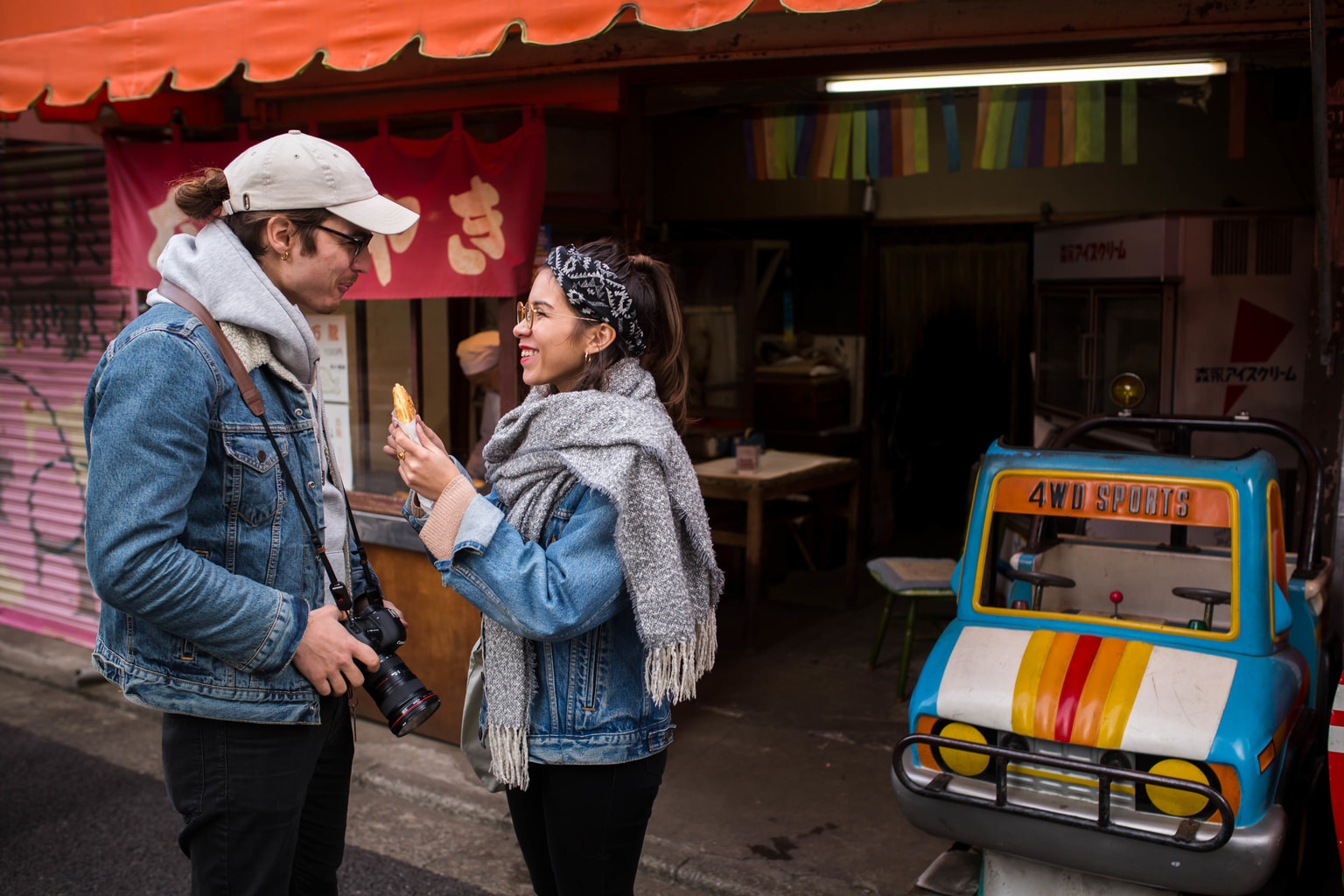
Now that you’ve seen and lived in the Japanese countryside, what do you think of the metropolitan lifestyle in Tokyo?
Amandine: One of the main reasons we decided to leave Tokyo is that we couldn’t stand to live there anymore. The dehumanization of the crowd, the lack of true bonds and the infinite concrete jungle were not for us anymore. Tokyo was fun when we were still into partying and getting wasted, and when the city still had many secrets for us. Now, maybe it’s because we’re getting older, but paying an overpriced rent, having to travel hours to see a bit of nature and never seeing the starry sky doesn’t sound so dreamy anymore.
Rodolphe: It’s difficult. Tokyo is a buzzing city which is overcrowded, but at the same time, people don’t even look at each other. I had my time there, and I won’t deny that it changed my life in many ways (I met Amandine there), but it’s just not for me anymore. If I had to stay in Tokyo for work, I would choose to live somewhere a little bit more remote so I can commute easily, but also escape easily. I don’t want to get caught by this giant. I need time for myself and my projects.
You can follow Amandine and Rodolphe on their Youtube channel or on Instagram.

